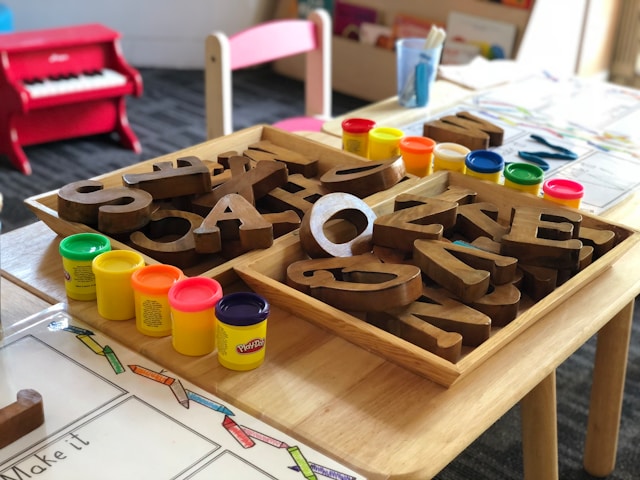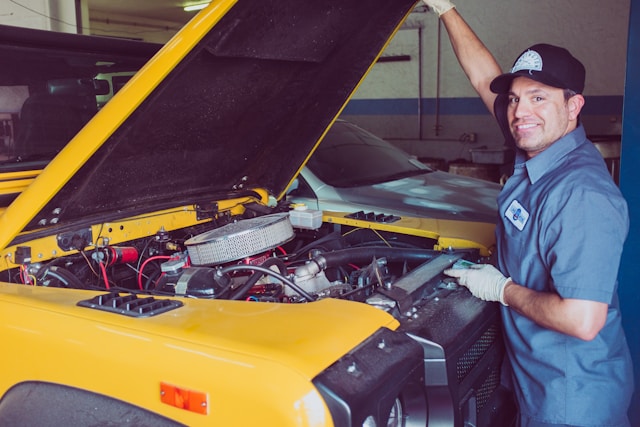Beyond ABCs: How Early Education Sets Kids Up for Success
Table of Contents:
- Introduction to Early Childhood Education
- Factors Influencing Child Development
- The Value of Quality Infant Care Facilities
- Parental Involvement in Early Childhood Education
Key Takeaways:
- Early childhood education plays a pivotal role in children’s cognitive, social, and emotional development.
- Selecting a high-quality childcare facility significantly enhances a child’s developmental trajectory.
- Forming a consistent learning environment between home and the care facility amplifies educational outcomes.
- Technological advancements and evolving pedagogy are setting new horizons for early childhood education.
Introduction to Early Childhood Education
Embarking on the educational journey at an early age yields innumerable benefits that permeate a child’s academic and personal life. Early childhood education lays the foundation for later academic endeavors, emotional health, and social skill development. An accelerated rate of development characterizes the initial stages of a child’s learning process; thus, it is imperative to integrate them into a secure and accessible child care facility Fairport, NY, or their community that can provide optimal learning conditions.
This formative period is marked by significant strides in language development, basic literacy, numeracy, and the cultivation of social relationships that prepare children for academic success and teach valuable life skills. Young brains will be well-nourished, challenged, and stimulated in an environment that will pave the way for their future academic careers.
It involves more than just taking care of the kids; it involves fostering an environment that is both caring and intellectually engaging so that kids can discover the love of learning. Many reputable institutions adopt such an educational philosophy integral to a child’s growth and development.
Factors Influencing Child Development
Childhood development is a complex tapestry woven from various threads, including family dynamics, education, and broader social interactions. Emotional well-being, shaped by loving and supportive relationships, is one of the cornerstones of healthy development. When children feel secure and valued, they are more likely to engage confidently with their surroundings and pursue learning opportunities. However, cognitive and social competencies are not solely hinged on positive reinforcement; they require targeted stimulation and challenging experiences that allow children to expand their understanding and adapt to new situations.
Interaction with peers, adult guidance, and hands-on educational experiences contribute to complex cognitive development. While mastering motor skills and coordination, physical activities also play a pivotal role, providing the quintessential requisites for the robust physical growth of young children. In settings where high-quality care is offered, such as a robust and well-regarded childcare facility, children can explore and develop these vital capabilities in a safe and nurturing environment.
The Value of Quality Infant Care Facilities
Accessibility to superior infant care has broad-reaching implications on a child’s life. When parents place their trust in facilities known for their excellence in infant care, they are not only investing in the present well-being of their children. Still, they are also paving the way for future educational victories.
Identifying such a facility isn’t just about checking boxes for accreditations but understanding what makes a daycare center stand out—be it the staff’s passion, the richness of the educational programs, or the inclusivity of the environment. A space where children are encouraged to investigate their world, express themselves, and blossom at their own pace is an essential attribute of a high-quality care facility.
Curricula that are thoughtful and calibrated to address the developmental stages of infants can foster a lifelong love of learning. With the proper care, children develop the confidence to question, explore, and learn about the world around them, laying the groundwork for all future cognitive endeavors.
Parental Involvement in Early Childhood Education
Parents serve as a child’s first educators—shaping their attitudes towards learning and providing unparalleled emotional support. Thus, when parents engage meaningfully in their child’s educational process, especially in these early stages, they enhance the effects of professional early child care. Bridging home and care environments involves adopting a consistent approach to behavioral norms, routines, and responses to children’s needs. This consistency makes children feel secure and understood, leading to better behavioral and educational outcomes. Finding common ground with childcare providers ensures that parents and educators work towards shared goals and reinforces children’s experiences at home and in their care facilities.
Communication is vital; establishing a frequent and open channel of dialogue with educators allows for shared insights into the child’s development. Regular updates on learning achievements and behavioral observations can become actionable strategies parents can carry on at home. Conscientiously participating in parent-teacher meetings, volunteering at the facility, and engaging in educational activities at home are all robust strategies that magnify the benefits of early childhood education.









